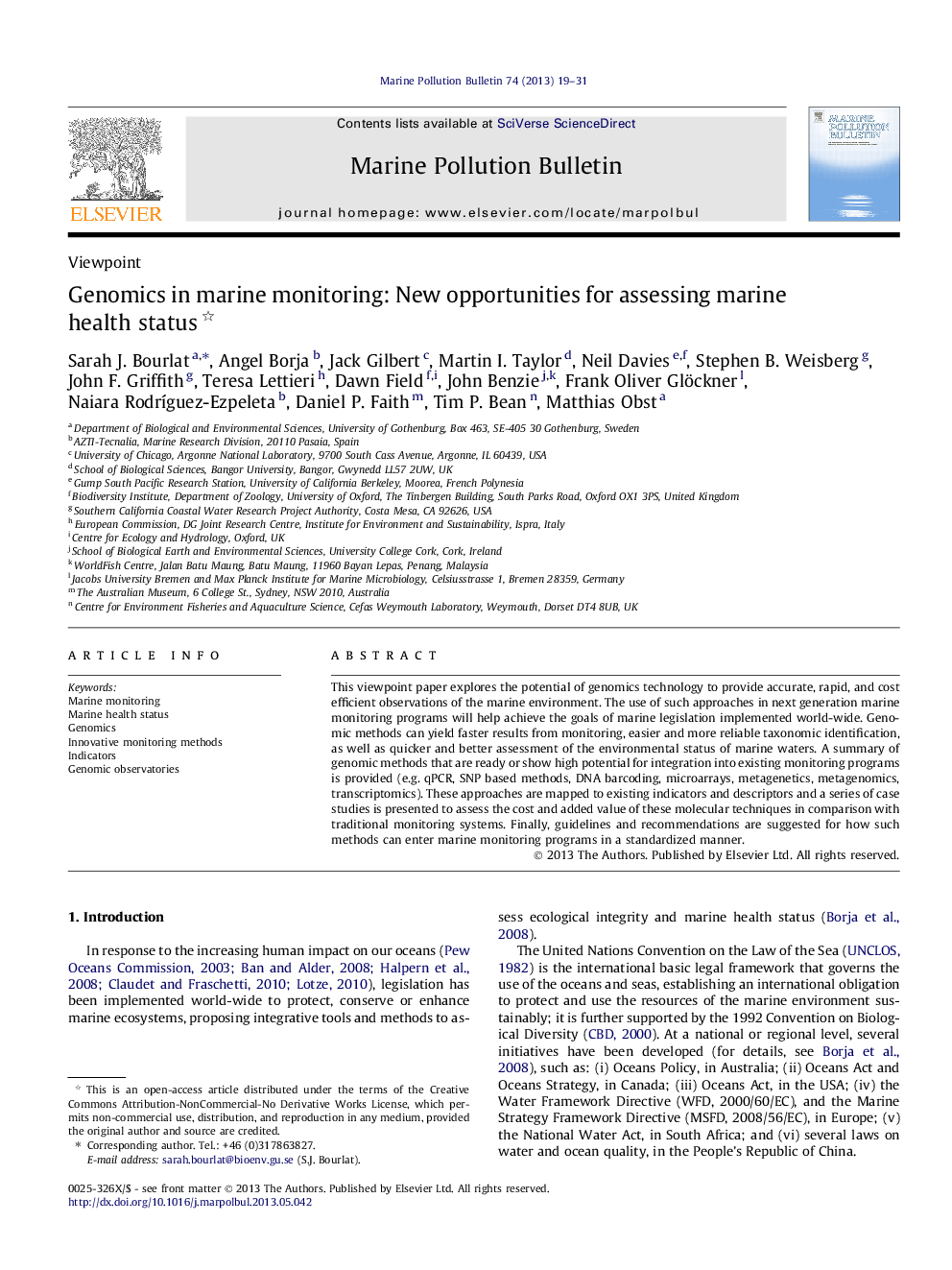| Article ID | Journal | Published Year | Pages | File Type |
|---|---|---|---|---|
| 6359607 | Marine Pollution Bulletin | 2013 | 13 Pages |
Abstract
This viewpoint paper explores the potential of genomics technology to provide accurate, rapid, and cost efficient observations of the marine environment. The use of such approaches in next generation marine monitoring programs will help achieve the goals of marine legislation implemented world-wide. Genomic methods can yield faster results from monitoring, easier and more reliable taxonomic identification, as well as quicker and better assessment of the environmental status of marine waters. A summary of genomic methods that are ready or show high potential for integration into existing monitoring programs is provided (e.g. qPCR, SNP based methods, DNA barcoding, microarrays, metagenetics, metagenomics, transcriptomics). These approaches are mapped to existing indicators and descriptors and a series of case studies is presented to assess the cost and added value of these molecular techniques in comparison with traditional monitoring systems. Finally, guidelines and recommendations are suggested for how such methods can enter marine monitoring programs in a standardized manner.
Keywords
Related Topics
Physical Sciences and Engineering
Earth and Planetary Sciences
Oceanography
Authors
Sarah J. Bourlat, Angel Borja, Jack Gilbert, Martin I. Taylor, Neil Davies, Stephen B. Weisberg, John F. Griffith, Teresa Lettieri, Dawn Field, John Benzie, Frank Oliver Glöckner, Naiara RodrÃguez-Ezpeleta, Daniel P. Faith, Tim P. Bean, Matthias Obst,
